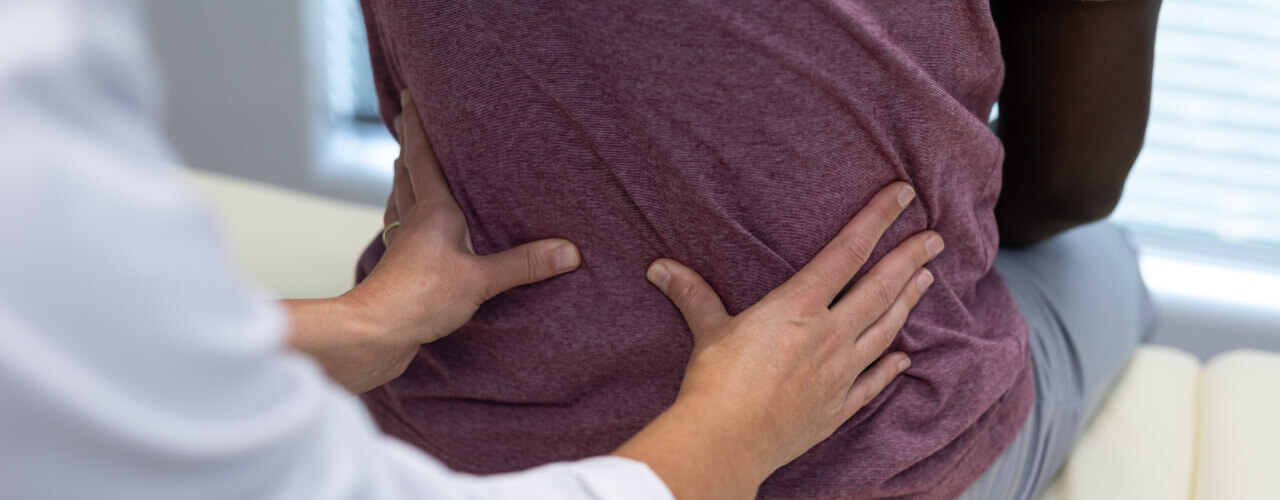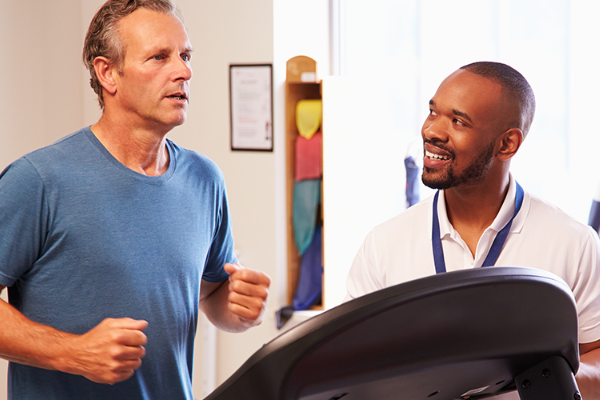Did you know that physical therapy can help you regain your mobility?
Hip and knee pain can be caused by a variety of factors, including excess weight, sports injuries, advancing age, and repetitive motion injuries.
Whatever the cause of your hip and/or knee pain, you must find a way to manage it if you are experiencing it on a regular basis.
Anti-inflammatories and other medications are commonly used to alleviate pain. However, these medications do have potential side effects, so it can be helpful to find other ways to relieve your pain.
Physical therapy may be the solution you are looking for. If you’ve been searching for a natural, safe way to find pain relief, call our clinic today to make an appointment. Our innovative care strategies at DonneFIT Physical Therapy will help you find quick relief.
Physical therapy for daily hip and knee pain
When you’re at the physical therapist getting treatment, you might feel better, but what about when you get home?
Your physical therapist’s main goal is to help you heal your injuries over time. The various exercises and treatments they use with you will gradually improve your condition, allowing you to live a life free of pain.
Your hips and knees are likely to become less painful as your body becomes stronger and more mobile.
What can I expect with physical therapy?
You should take pain relievers every day if your doctor has advised you to do so for your hip and/or knee pain. It’s never a bad idea to ask about other options, such as physical therapy.
Working with a physical therapist can help you reduce or eliminate pain in a variety of ways, including the following:
- Exercises to improve mobility and flexibility. Hip and knee pain frequently results in a loss of mobility and flexibility, which increases joint wear and causes even more pain. Physical therapists can guide you through exercises to improve your mobility and flexibility, allowing you to move your limbs and joints through the full range of motion that your body and circumstances allow.
- Exercises to increase your strength. Muscle weakness can exacerbate hip and knee pain because the weaker your muscles become, the more stress is placed on your joints. Physical therapy focuses on specific exercises that target and strengthen various muscles so that they can better support your joints.
- Ultrasound therapy. Muscle weakness can exacerbate hip and knee pain because the weaker your muscles become, the more stress is placed on them. Physical therapy focuses on specific exercises that target and strengthen various muscles so that they can better support your joints.
- Heat and ice therapy. Heat can help you move more freely by improving your mobility and reducing the amount of pain you’re experiencing. Ice can also be used to relieve pain and reduce inflammation in your hip and/or knee.
- Identify the causes of your hip and knee pain. There may be one or several reasons why you are experiencing hip and knee pain. A physical therapist can examine your movement to see if anything is contributing to your pain, such as bad posture, bad walking patterns, or bad work movement patterns. Physical therapists can tell you how to fix these problems once they’ve been identified.
Choosing physical therapy over medication
It’s best to follow your doctor’s instructions if he or she has prescribed pain relievers for you. You are, however, free to speak with your doctor about physical therapy. If you find that physical therapy has reduced your pain, you can talk to your doctor about cutting back on your pain relievers.
Looking for long-lasting pain relief? You’ve come to the right place!
Our licensed physical therapists are experts in the field of movement. They’ll look at how you walk to see if there are any abnormalities and to identify any stiff or weak muscles. They can create a treatment plan that will improve your strength, coordination, and overall mobility by pinpointing the exact areas of your body that aren’t moving as they should.
One of the most effective treatment methods for knee and hip injuries has been proven to be physical therapy. This has been demonstrated through several research-based studies, including a 2014 study published by the Journal of American Medical Association.
The study, titled “Effect of a Home-Based Exercise Program on Functional Recovery Following Rehabilitation After Hip Fracture,” focuses on the benefits of exercise programs for those recovering from hip fractures. In this study, patients were split into two groups.
The intervention group received “functionally oriented exercises (such as standing from a chair, climbing a step) taught by a physical therapist and performed independently by the participants in their homes for 6 months,” while the other group simply received education on cardiovascular nutrition and recovery.
Results from this study concluded that those participating in the in-home physical therapy exercise programs demonstrated “modest improvement in physical function at 6 months after randomization.”
Normalizing motion is crucial to relieving pain and allowing you to safely participate in the activities you enjoy. Our knowledgeable physical therapist in Philadelphia, PA can assist you in improving your walking, running, and playing abilities. We can identify muscles and joints that need treatment using motion analysis, strength testing, coordination testing, and other methods.
Your treatment plan will be tailored to your specific needs in order to help you achieve peak performance with the least amount of effort.
Consult with a physical therapist today
You don’t have to keep living in pain and discomfort. Please contact us today to schedule an appointment with a physical therapist for your hip and knee pain. We are standing by to assist you!


